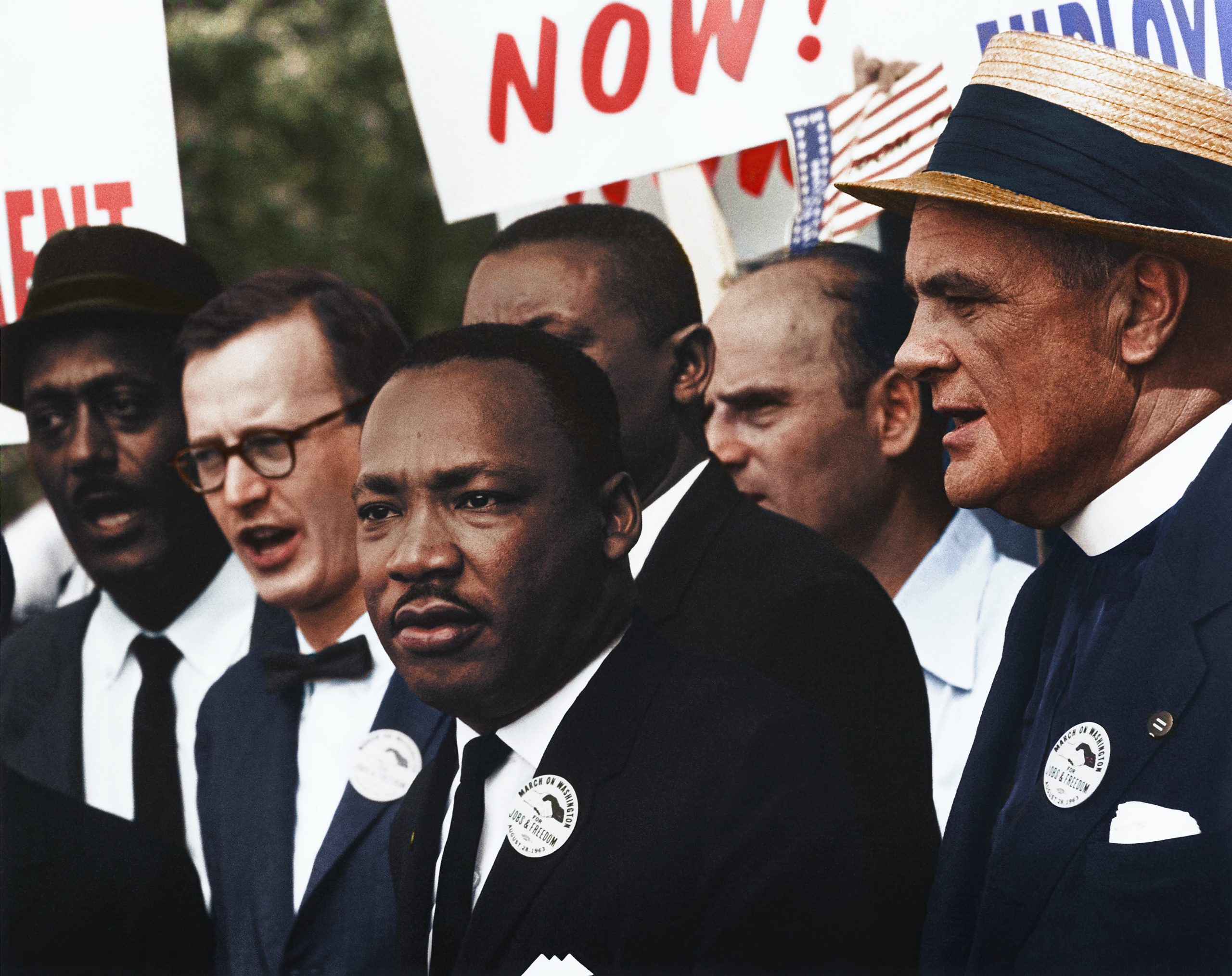
Love your enemies. These hard words preached by Jesus in the Sermon on the Mount are as countercultural today as they were in 33 AD. Increasingly, our polarized society sees their fellow man as an enemy to defeat, not a fellow man to convince. Amidst important debates in our nation over race, presidential elections, and other hot-button issues where tensions run high—hating your neighbor is seen as a virtue, not vice.
Our nation and its churches are no strangers to important conflict over the issues surrounding us today. Seventy years ago churches had heated debates over similar issues (albeit in a different context) and Dr. Martin Luther King, facing unspeakably wicked racism, preached a sermon at Dexter Avenue Baptist Church where he pastored titled “Loving Your Enemies.”[1] In this sermon, King gives three practical reasons why the Christian must not succumb to hating their enemies, even when it seems easy.
Hate Begets Hate
King begins his exhortations against hate with an illustration about driving with his brother on a dark Georgia night. People were flying down the road with their bright lights on, nearly blinding the King brothers with each passing car. His brother, wanting to teach the next car a lesson, said “I’m going to fail to dim mine and pour them on in all of their power.” King retorted sharply “Oh no, don’t do that. There’d be too much light on this highway, and it will end up in mutual destruction for all. Somebody got to have some sense on this highway.”
For centuries and centuries kings, nations, and people have “refused to dim the lights” which only gives way to more and more escalation. We should learn from King, who had any number of reasons to not “dim the lights,” yet, following the example of Christ, turned the other cheek. King says of hate, “it is all a descending spiral, ultimately ending in destruction for all and everybody. Somebody must have sense enough and morality enough to cut off the chain of hate and the chain of evil in the universe. And you do that by love.” Hate begets hate. Love begets love. We all must choose one path, and for the Christian the only path is the path of Jesus—the path of love.
Hate Destroys You
It is easy to deem hate evil because it harms another person. Though, according to King, the worst part of hate is what it does to you. The more you hate a person, the more irrational you become. King claims for the one who hates, “the beautiful becomes ugly and the ugly becomes beautiful. For the person who hates, the good becomes bad and the bad becomes good.” Even modern psychologists see how hatred and bitterness poison the mind of the hater, but King reminds us “long before modern psychology came into being, the world’s greatest psychologist who walked around the hills of Galilee told us to love.”
Today we are told hatred for those out of step with what we perceive to be right is the virtuous choice, but in the end, this will just leave us bitter and the situation worse. Even if we are right about the issue, without love, King teaches we are out of step with Christ. King imagines Jesus walking around the hills of Israel and seeing Rome’s military might, the same might the Jews expected him to come with, yet whispering to himself “I will not use this method. Neither will I hate the Roman Empire.” Even as Christ hung on a weapon of that empire, he did not hate, he loved and forgave.
Hate Cannot Redeem
In his day, many men gave King reason to hate. He was beaten, mocked, arrested, and denied his rights for his freedom fighting. Understandably, many fell back on more violent forms of protest so that they could be heard. In spite of King’s insistence on peace he was still persecuted. Yet in this persecution, King was marked by a relentless pursuit of love—even for the worst of his enemies.
King knew and preached that “There is a power in love that our world has not discovered yet. Jesus discovered it centuries ago… but most men and most women never discover it. For they believe in hitting for hitting; they believe in an eye for an eye and a tooth for a tooth; they believe in hating for hating; but Jesus comes to us and says, ‘This isn’t the way.’” In his life, death, and resurrection Jesus embodies this love. In his person he shows us the redemptive power of love over enemies because in the ultimate act of enemy love, Christ lived out this verse: “God shows his love for us in that while we were still sinners, Christ died for us” (Romans 5:8).
Conclusion
In our lives hate is an easy a socially acceptable escape from our problems. Political divides, church drama, and interpersonal conflict seem to be natural and practical avenues to hate. Though I pray the church will set the example Jesus left for us by loving both our neighbors and our enemies. Then we, like King, can pray “Grant that all men will come together and discover that as we solve the crisis and solve these problems—the international problems, the problems of atomic energy, the problems of nuclear energy, and yes, even the race problem—let us join together in a great fellowship of love and bow down at the feet of Jesus.”
[1] All quotes appear in “Martin Luther King, Jr., “Loving Your Enemies,” in A Knock at Midnight: Inspiration from the Great Sermons of Martin Luther King, Jr., edited by Clayborne Carson (New York City: Warner Books, 2000), 315-324.”

